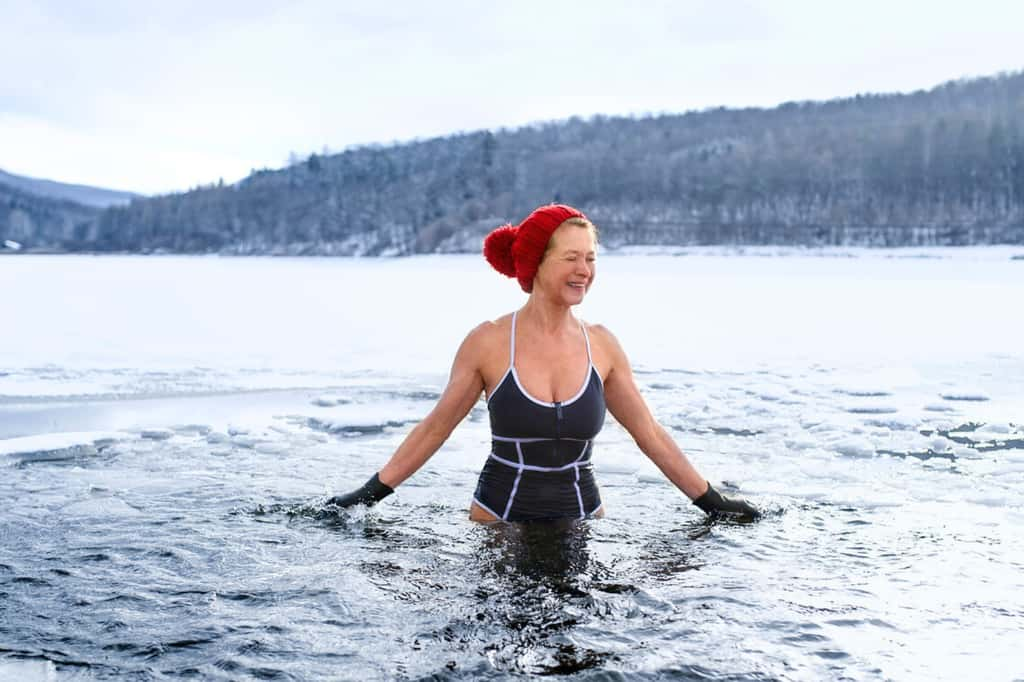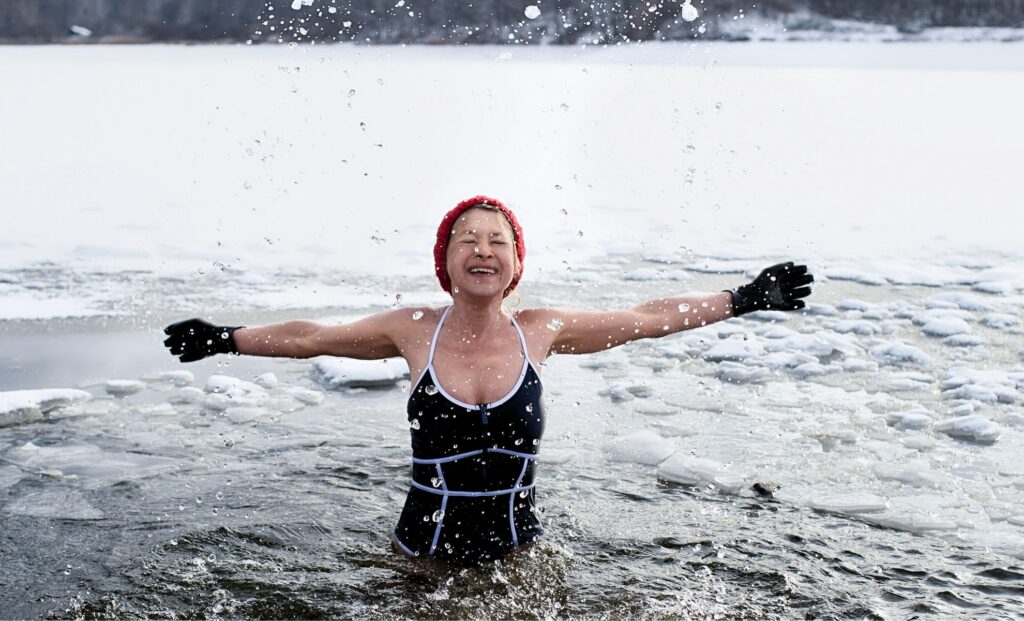It’s a sensation many of us dread — plunging into freezing water. But recent findings suggest that this discomfort might hold a powerful secret to our health. For years, cold exposure has been used for everything from boosting energy to reducing inflammation. Now, scientists are suggesting that the benefits could go deeper than we thought, reaching into our cells and possibly even slowing aging.
The Science Behind the Freeze
Researchers at the University of Ottawa, led by physiologist Glen Kenny, have discovered that exposing the body to cold water triggers a remarkable biological process. The study, which was published in Advanced Biology, shows that just one week of daily cold-water immersion can significantly affect how our cells function.
One of the most striking effects is an enhancement in autophagy, the process by which cells clean up waste and repair themselves. This internal “cleaning” may be a key factor in protecting against age-related diseases and improving overall health.
The study focused on participants who immersed themselves in water at 14°C (57°F) each day for a week. What they found was nothing short of remarkable: a noticeable improvement in cellular functions that would normally take much longer to develop. According to the research team, autophagy was stimulated rapidly, and other beneficial effects, like reducing inflammation and slowing cell death, were also observed.

Adaptation to Stress: How the Body Learns to Handle the Cold
At first, the body reacts violently to the cold. Cells initially experience stress, as they move from a normal state to one of acute survival. In the beginning, the effects are damaging: cell processes related to autophagy don’t work properly, and there’s an increase in apoptosis, or programmed cell death. But something incredible happens as the days go by. By the third day of immersion, the body begins adapting.
Researchers observed a shift in how the body handles the cold: it starts focusing on repair and preservation instead of destruction. This change is crucial, as it helps the body build resilience to future stressors, whether from the cold or other environmental challenges.
Kelli King, a physiologist involved in the study, emphasized the significance of this shift: “At the end of the acclimation, we noted a marked improvement in the participants’ cellular tolerance to cold. This suggests that cold adaptation can help the body cope with extreme environmental conditions.” It’s this adaptive process that gives cold-water immersion its potential to improve both physical and cellular resilience.
Cold Water: More Than Just a Reviving Rush?
Cold water immersion may sound extreme, but its potential benefits could be far-reaching. The study’s findings point to cold-water exposure as more than just a toughening exercise or a way to wake up the body. It could be a therapeutic practice with long-term health benefits. Autophagy, which was significantly improved by the cold exposure, plays a vital role in protecting against a variety of chronic conditions, including neurodegenerative diseases and cardiovascular issues.
The potential therapeutic impact of these findings is significant. By stimulating autophagy, cold exposure may help protect cells from aging and disease. This could pave the way for cold-water swimming to become a common practice not only for athletes but for anyone interested in preserving their health as they age.
Glen Kenny remarked that the speed at which the body adapted to the cold was astonishing. “It’s like a complete overhaul of the body’s microscopic machinery,” he said, suggesting that the process could help stave off illnesses related to aging and stress.
The researchers caution that while these initial results are promising, further research is needed to confirm the broader implications. The study, which involved only a small group of young, healthy men, does not yet take into account the effects on women or people with different health conditions. More extensive research, including studies in natural settings, will be necessary to fully understand the scope of cold-water immersion’s benefits.

